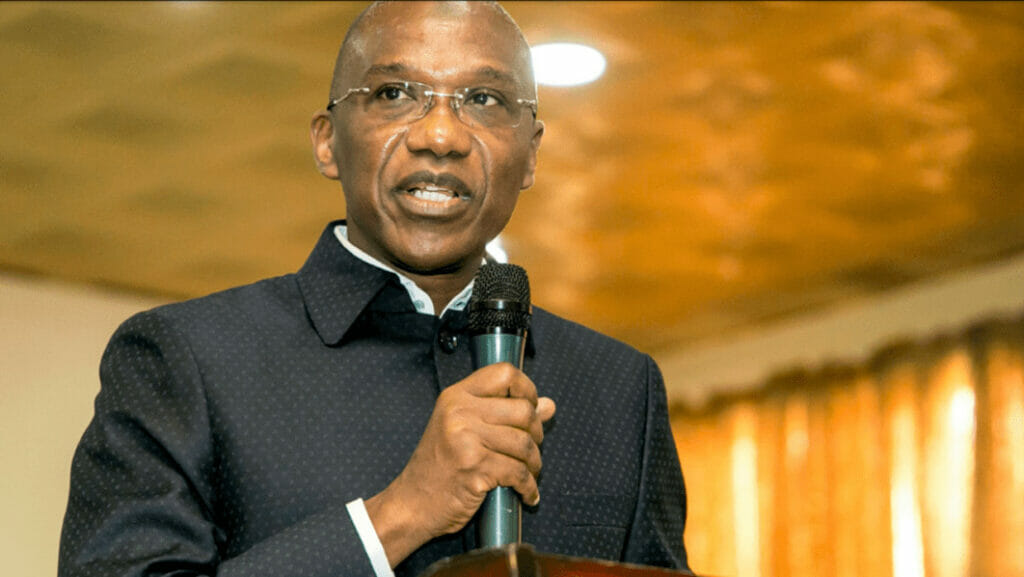The Asset Management Corporation of Nigeria said on Friday that it had submitted a list of its top 1,000 debtors to the National Assembly as part of the strategy to intensify its debt recovery drive.
AMCON estimated the total current exposure on all eligible bank assets to be N4.4tn, stating that the market value of the assets had drastically decreased below the valuation at the time of acquisition owing to the socio-economic slump, making sales transactions exceedingly difficult to complete.
According to a statement, the list of “recalcitrant obligors” was presented to members of the House of Representatives Committee on Banking and Currency at a retreat in Lagos.
According to a report by the PUNCH, a top source stated that the 1,000 debtors were responsible for 90 per cent of the total debt of N4.4tn, translating to N3.9tn.
The source said, “The 1,000 debtors are those responsible for the big-ticket debts. Many prominent Nigerians across different sectors of the economy are on the list. These people and their companies are responsible for 90 per cent of the total current exposure on all eligible bank assets put at N4.4tn.”
The source added that if AMCON was able to recover the debts owed by the 1,000 top debtors, the story would be different from what it was currently.
The President, Major General Muhammadu Buhari (retd), had on Thursday signed into law the Asset Management Corporation of Nigeria (Amendment) Act, amending the AMCON Act No.4, 2010.
The AMCON Act provides for the extension of the tenor of the resolution cost fund and grants access to the Special Tribunal established by the Banks and other Financial Institutions Act 2020, which confers on AMCON the power to, among others, “take possession, manage, foreclose or sell, transfer, assign or otherwise deal with the asset or property used as security for Eligible Bank Assets, and related matters.”
The Chairman of the House of Representatives Committee on Banking and Currency, Mr Victor Nwokolo, who received the list from the Managing Director/Chief Executive Officer of the corporation, Mr Ahmed Kuru, was quoted as saying that the committee called for the list so that the National Assembly would knowa “those holding the country to ransom.”
He said this would enable the lawmakers to meet with relevant agencies of the Federal Government on how to further deal with the debtors to ensure the realisation of AMCON’s mandate in the overall interest of the Nigerian economy.
Nwokolo, who commended the commitment of the Kuru-led agency, said the corporation had been operating under a very difficult condition since its establishment, adding that this had been made worse by the COVID-19 pandemic.
He said the harsh economic realities caused by COVID-19 meant that “the recovery assignment AMCON is doing for the country has been further compounded, which is why the National Assembly is looking at ways of further supporting the recovery drive.”
According to him, the National Assembly is considering punitive measures in dealing with those whose names made the top 1,000 AMCON debtors’ list.
He said he was happy Buhari had signed the amended AMCON Act into law as it would help the corporation to recover the huge outstanding debt and ensure the achievement of the Federal Government’s aim of setting up AMCON in 2010.
While presenting the list, Kuru said, “To enable AMCON to succeed in its national call to duty, AMCON solicits the continued support of this distinguished committee.
“The judiciary must be encouraged to respect the provisions of the law that require them to fast-track cases before them, issue certificate of judgement on properties, which the corporation has no collateral and demand debtors to deposit judgment sum before proceeding to appeal any judgement.”
Kuru said the judiciary had been of tremendous support, adding that the corporation’s recovery drive “is heavily dependent on the judiciary in the country because AMCON has over 4,000 cases in court.”
He said the corporation was challenged with so many issues, including unperfected title documents of some properties from eligible financial institutions, which often prevent or elongate the completion of the sale of some of the assets.
Another issue, according to him, is a general market perception that AMCON assets are distressed; hence buyers request for deeply discounted prices, and the basis for the pricing of EBAs at the point of purchase was the valuation of the assets.
Kuru added that with the support of the National Assembly and the judiciary, recovering the total current exposure on all EBAs might be possible before the corporations’ sunset period.
